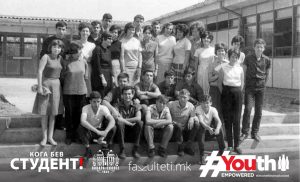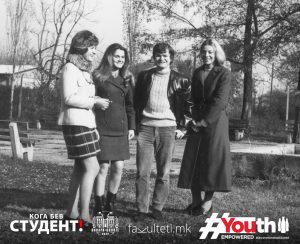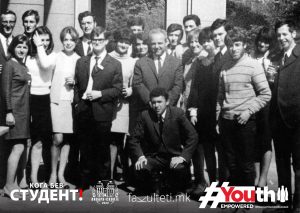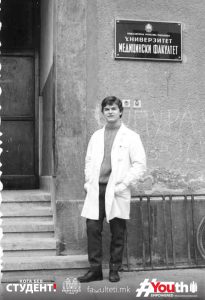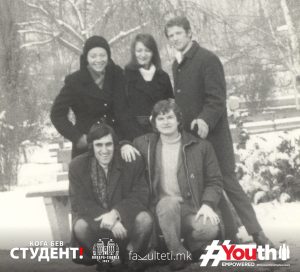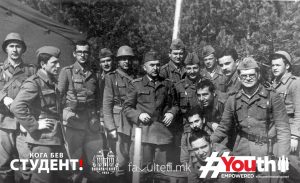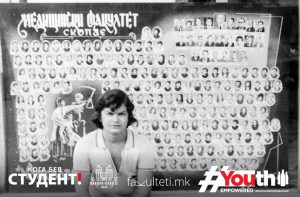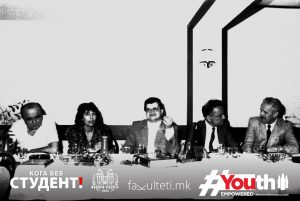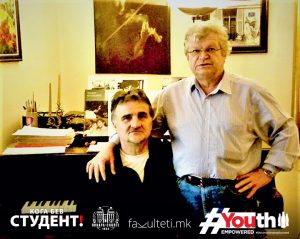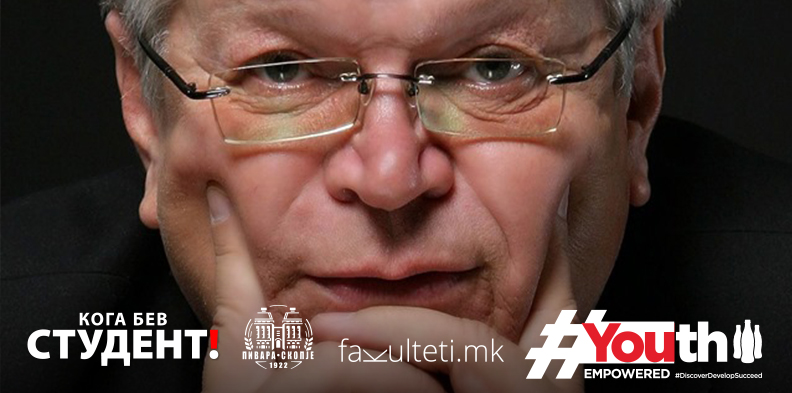
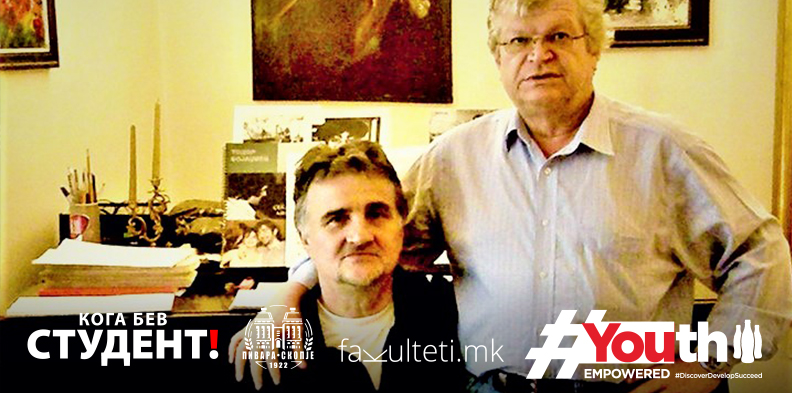
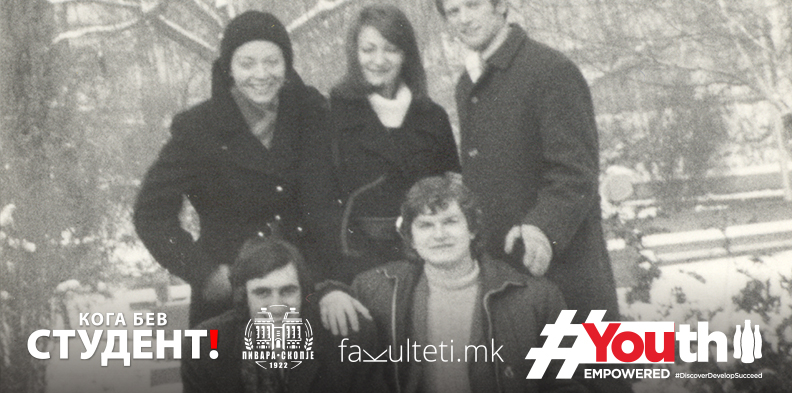
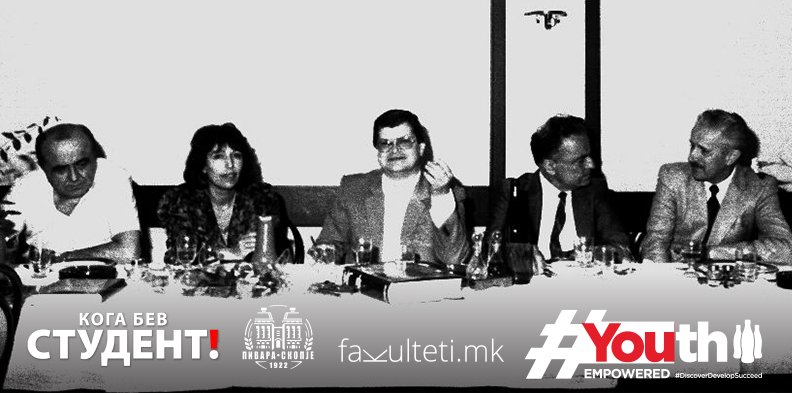
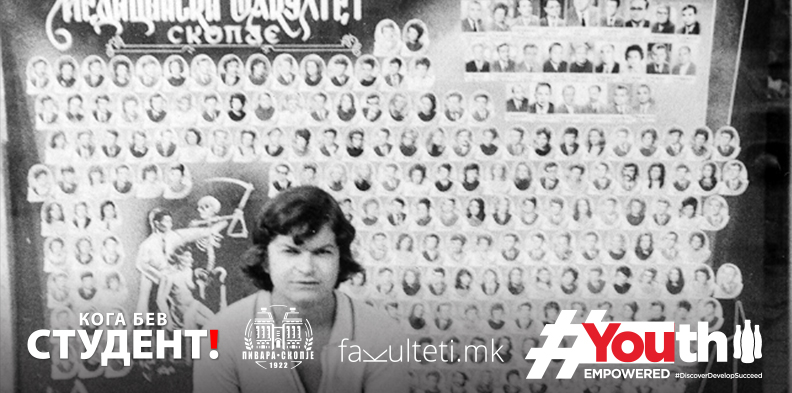
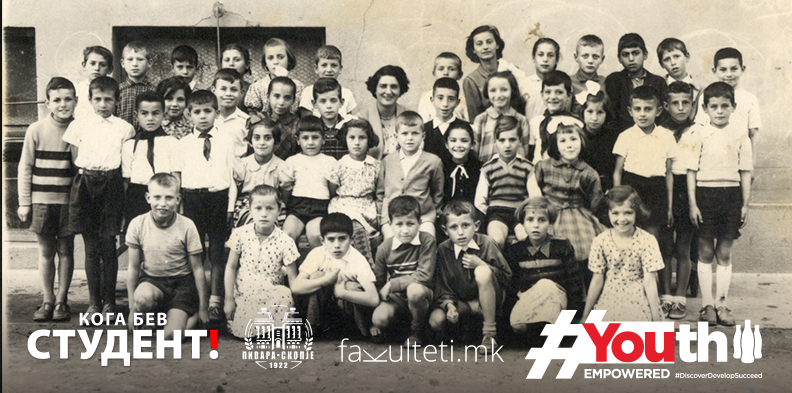
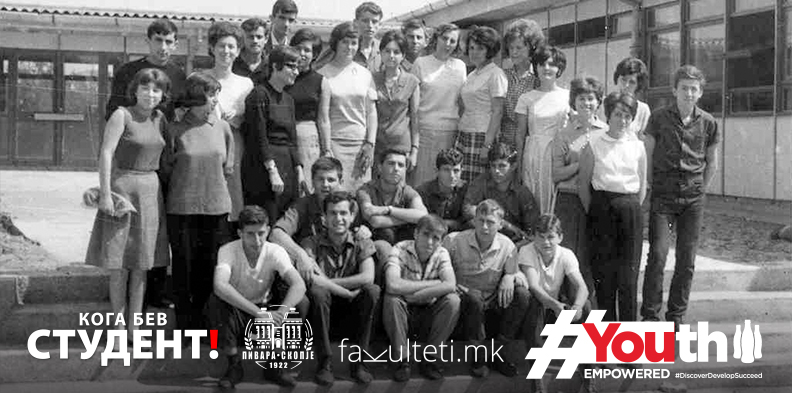
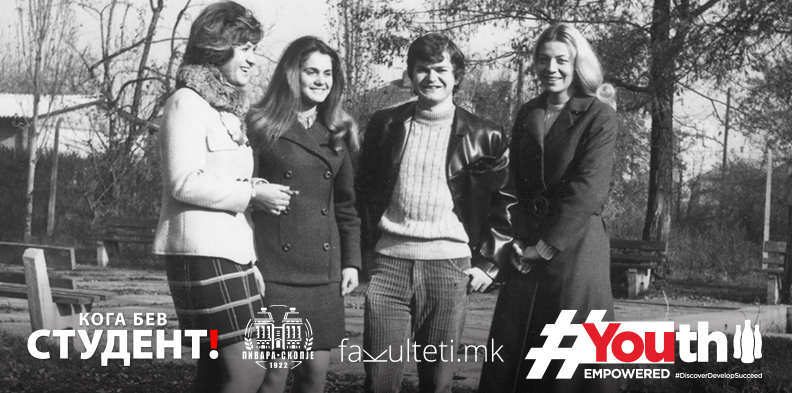
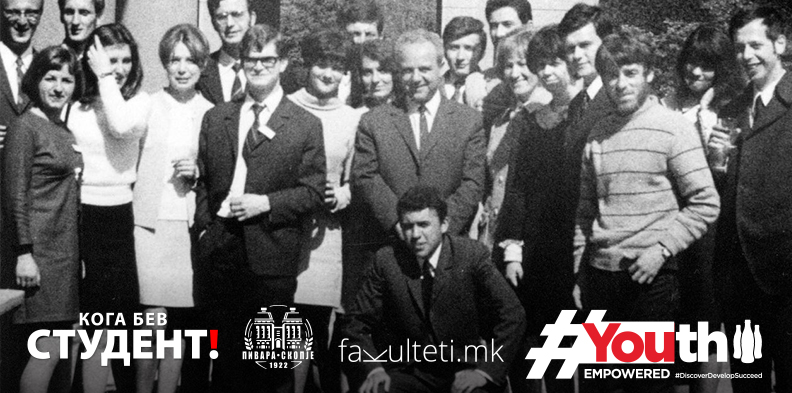
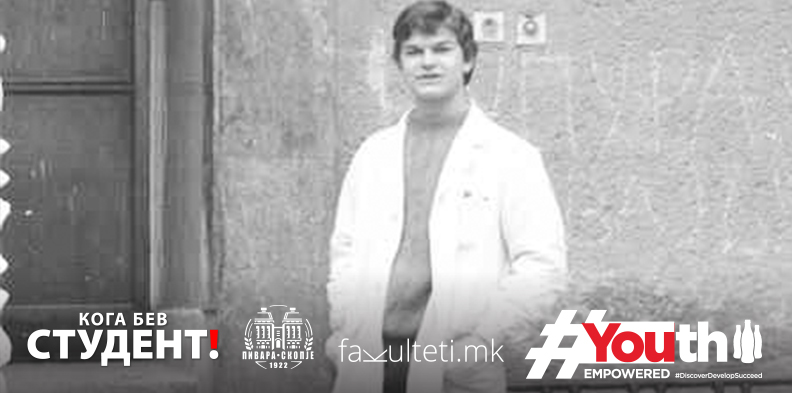
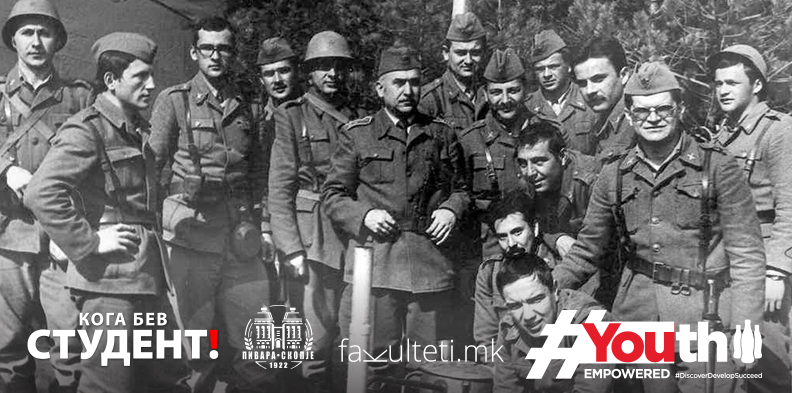
“WHEN I WAS A STUDENT” WITH DR. VLADIMIR PLAVEVSKI: I STUDIED WITH TODOR BOJADZIEV FROM MORNING TILL NIGHT. I WAS GOING TO HIS CONCERTS, AND HE CAME TO MY PHOTO EXHIBITIONS
Socializing with colleagues from other cities was extremely interesting to me because almost everyone spoke their dialect, they had a completely different mentality from people in Skopje and lived in dormitories. They were taking care of themselves, not like me – my parents – says Plavevski in the column “When I was a student”
He became a “doctor” even before he formally earned the title. The children in the neighborhood where he grew up called him like that because he cared the most of all and was the first one to help when wounds and bloody knees would be appeared. Dr. Vladimir Plavevski, a retired otorhinolaryngology specialist, is our choice for today’s student story. He is a person with many stories and affinities for many areas – from a young age he wrote, he wanted to be a dramatist, and photography is his great love.
As incredible as it may sound, but that children’s play, and later the encouragement from his biology teacher, was crucial, or as he puts it – “with deep-rooted prejudices” to enroll in the Faculty of Medicine in 1967.
Talented in many areas
He studied in the high school “Cvetan Dimov”, which was located on the place where today is MANU and was an excellent student, as well as in the primary school (“Braka Miladinovci”). Since the elementary school he wrote and won awards for poetry and short stories.
– At that time there were sections from almost all school subjects (literary, drama, photo, mandolin, physical education, biological, mathematics section, school choir, etc.) that worked actively. There were also competitions between schools in Skopje, and the winners competed with other winners from cities in Macedonia, and then went to competitions at the level of Yugoslavia. I traveled a lot across that time Yugoslavia, because of my literary awards. But I also excelled in the biology section with various frog and lizard experiments and traveled to other cities again. But everyday neighborhood events played a role in my decision to study medicine. In the neighborhood fights, the losers always bled. People around them, when they saw blood, fled. I approached them, helped them, bandaged their wounds with whatever I could find, wiped their blood … And then I got the nickname Doctor, which was an honor for me. In high school, biology professor Stole even occasionally gave me a biology class. He claimed in front of the whole class that if someone is a doctor, it would be only me – reminds Plavevski.
Since he was a dramatist, he considered enrolling in dramaturgy and he was reading textbooks in that field since high school. But at that time, this kind of studies were available only in Belgrade, says Dr. Plavevski.
– Neither my family wanted to send me to Belgrade neither I wanted to leave Skopje. On top of that, when I told someone that I wanted to study dramaturgy, even educated people, no one knew what it was – says our interlocutor.
Active in student organizations
As a student in medicine he was extremely active, and the days were fully filled with lectures and exercises. In the first year he joined the student organization of the Faculty.
– Instead of having exam sessions three times per year, we managed to get an exam session every month due to the extensive and difficult subjects we had to take, which was then a great success of the Student Organization. I also led the organization for International Exchange of Students in Medicine, I worked on professional student topics, I was a student representative in the Scientific Council of the Dean’s Office. I took the exams on a regular basis with high grades – says Plavevski and adds that he graduated in a regular time with an average of 9.6.
Grades were important to him. At that time, the exams were taken in front of the candidates and gradually it was created an atmosphere that when he had to take the exam, many listeners gathered.
– That surprised the professors, but slowly they also realized that they would take ten exams with them, which was an additional effort for me because I was getting difficult questions. After graduating in 1974, as many as three institutes offered me a job due to the high average, but because I still had not served in the military, and that was one of the conditions for employment, I got a job in the Health Center – Skopje after serving my military service. – reminds the specialist.
First the army, then employment
Who were Plavevski’s favorite professors? In high school it was certainly prof. Dr. Spasova in Macedonian, who loved his literary compositions, as well as biology professor Stole, who jokingly claimed that Vladimir knew biology better than him and that he should see a future in the white coat. At the faculty he impressed prof. Dr. Karakasevic, who taught microbiology and epidemiology.
– He never used notes and manuals like many of his colleagues, but from the beginning to the end of the lectures he taught us with a million details, as we used to say, as if he had swallowed a gramophone record. Prof. Andreevski (otorhinolaryngology specialist, dean and rector) impresses me with his expertise and energy and maybe because of him I went to specialization in otorhinolaryngology. I had the honor to personally congratulate me for the excellent specialist exam with 10 in front of the Professional Collegium of the Otolaryngology clinic – says Plavevski.
After graduating in 1974, he followed a full-year internship in all the clinics of the Faculty and finally a state exam.
– This was not easy either, because you had to be actively present at all clinics for a certain period to get a signature from the professor, director of the Clinic. And the state exam seemed to be an exam at the Faculty of Law. And, in order to get a job, I had to have served 12 months of military service. I was in the Military Medical Academy in Belgrade for six months, and then I was transferred to Titovgrad (today Podgorica). “After completing my military service, as a lieutenant, I went to multi-day military exercises, something that is unknown today,” said our interlocutor.
Socializing with students from other cities
Something that impressed him a lot during his studies was that he could meet and hang out with colleagues from almost all cities in Macedonia.
– Socializing with them was extremely interesting to me because almost everyone spoke their dialect, they had a completely different mentality from the people in Skopje and lived in dormitories. They took care of themselves, not like me – my parents. They wanted to hang out with me, and I spent hours and hours with them, in the barracks, we went on picnics, to the cinema, they came to visit me. I also met foreign students from Palestine and Ghana and invited them on a lunch at my home. And when Eid, a Palestinian student, came on lunch at my home he brought a huge bouquet of flowers, my parents kept asking me about him even after graduation. I went to visit my colleagues in Vinica, Stip and Prilep, to the satisfaction of their parents that a man from Skopje comes to visit them – he laughs.
He had many colleagues with whom he was like a brother. But in this occasion, he wanted to mention Dr. Todor Bojadziev, about whom he says: “Unfortunately deceased, who is still known as a composer of fun melodies.”
– We even studied with him before the exams, from morning till night, one week at his place, then the other at my place. After graduating, he specialized in gynecology, and I in otorhinolaryngology, but we still hung out. He regularly came to my book promotions and solo photo exhibitions, and I to his concerts – shares Plavevski.
There is a real happening of otorhinolaryngology exercises which, according to him, sounds like an anecdote and he shares it in public for the first time
– I should have taken a history from a patient who had just had an operation on one ear. The patient was conscious after the operation on his right ear, which was wrapped. But he kept telling me that his left ear was sore and runny! He wondered why his right hand was operated on. I went to the doctor’s room where the hospital records were. I found his file and saw the X-ray. The sore ear was marked L (left). Stunned, I went immediately to prof. Andreevski told him the problem. He frowned more and more as I showed him. When I finished reporting, Sripa called him on the phone and prof. Glavas, who came immediately and together we went to the operated patient. The patient was operated on by a recently completed trainee who apparently made a mistake. The trainee was not at work and did not answer the phone. The patient immediately operates again personally prof. Andreevski. The next day the patient lay with two bandaged ears. I went to see him. After me, the stubborn specialist who operated on the wrong, healthy ear entered the room. The patient looked at the first operator and asked him why both ears had been operated on. The specialist, an unprecedented nurse at the clinic, replied that they had to connect the nerve from his right ear to the nerve in his left ear to hear better! In any case, I, as a trainee, were ordered by the two professors not to talk about this. And here I am saying it for the first time… – Plavevski concludes.
His colleagues would not have had photos from their studies if it was not for him
Photography has been his passion since he was a child. His father was a photographer and copied photographs into the shed. From an early age, he allowed Vladimir to take photos, which were mostly his parents and current family photos.
– When I came to the photo section, I already knew a lot about photography, so I was immediately sent to various photo contests where I won awards. We did not have a photo section in the high school, but then I enrolled in the photo club “Vardar”, which impressed me with the then members Blagoja Drnkov, Aco Zatkoski, Kiro Bilbilovski, Lazo Velichkovski, Zivko Janevski … They all exhibited in the photo club, so-called art photography, and throughout the then time Yugoslavia, even abroad, they won awards. To me they were unreal, divine greatness. I studied for years, or rather I stole from their crafts for photography and the achievements in art photography. They did not want to reveal the secret of the photo to curious ‘kids’ like me. “They messed with their overpriced Nikons and Hasselblades, while everyone else used Russian Zeniths and East German practices,” he said.
He won many awards for his photos, and he did not stop this love even in his studies.
– Folk technique, which included the club, held competitions in city and intercity photo sections and I was the instructor of the competitors. I already completely mastered the photographic technique and slowly started to engage in exhibition activity. Gradually I started to win awards wherever I sent my photos (black and white photos with dimensions of 30 x 40 cm and color slides). The most important thing is that I wore the camera “ALTIX NB” (I still keep it today!) Regularly at lectures and exercises and – I took pictures! Much later some colleagues told me that if I have not photographed, they would not have memorial photos from their medical studies!







